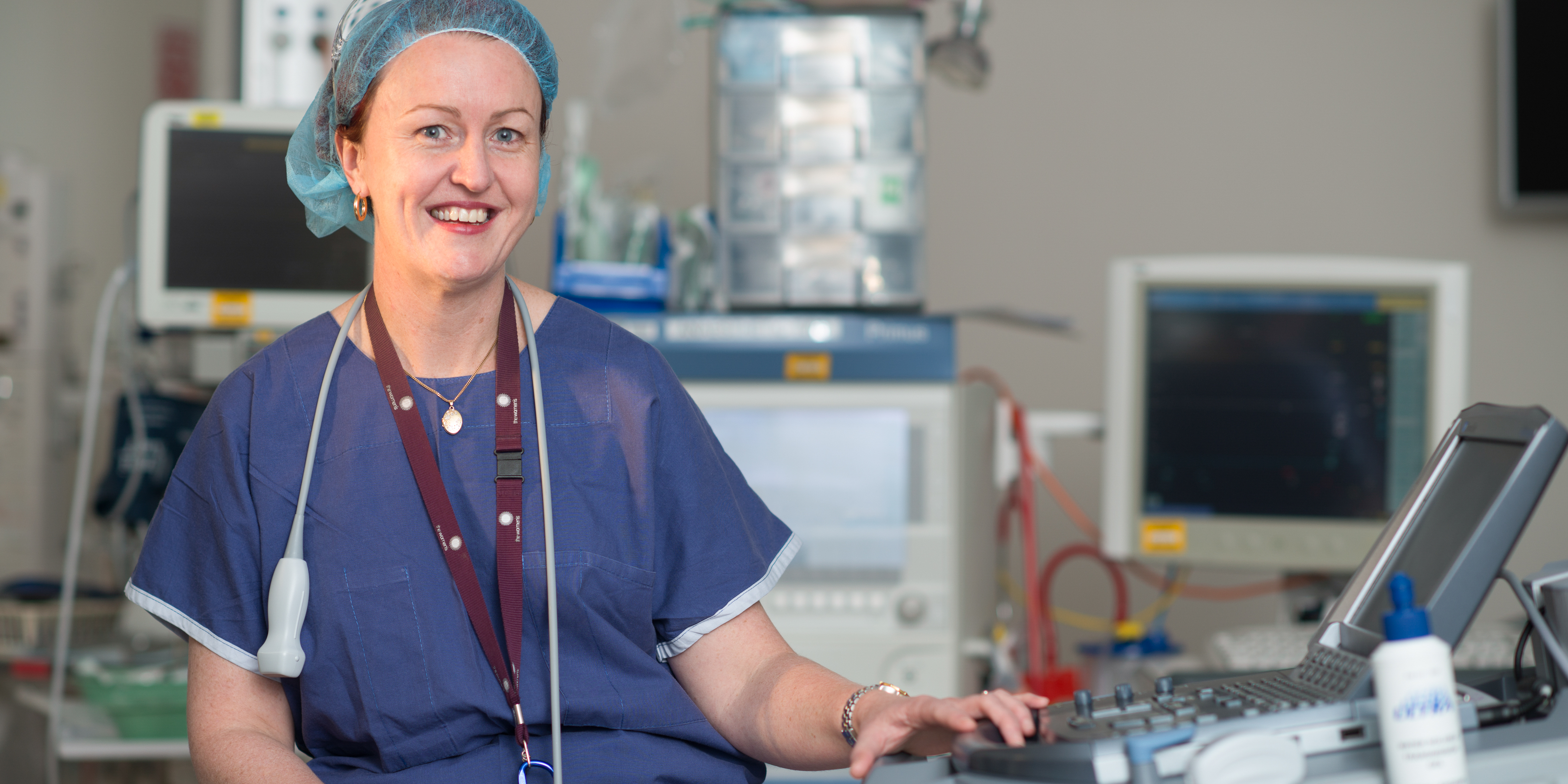
The Women’s Department of Anaesthesia has a long history of research, teaching, education and innovation. Founded in 1951 by Dr Kevin McCaul, it was the first obstetric anaesthesia department in Australia.
The department has an active research program concentrating on world-first research in the area of heart function in pregnant women with preeclampsia. Preeclampsia is a condition that typically starts after the 20th week of pregnancy and causes high blood pressure. It affects the woman’s heart, kidneys, liver, brain and the placenta. It is also a leading cause of fetal complications such as low birth weight, premature birth and stillbirth.
Current research projects in the department use the ROSE Scan – the Rapid Obstetric Screening Echocardiology Scan – which has been developed to rapidly and safely assess a sick pregnant woman's heart function. It is a world-first ultrasound technique that monitors the hearts of critically ill pregnant women in the same way their unborn babies are scanned.
Developed by a Women’s anaesthetist, Clinical Associate Professor, Dr Alicia Dennis, the ROSE Scan lets doctors, for the first time, instantly see the inner workings of heart function in pregnant women without invasive high-risk monitoring.
The ROSE Scan is tipped to revolutionise treatment for the life-threatening condition that approximately 15,000 Australian women suffer each year.
Dr Alicia Dennis enjoys an esteemed career in both clinical practice and research. She is a strong advocate for high-quality, scientifically based education for women and girls, to enable them to make informed choices. She also believes the role of the obstetric anaesthetist is vitally important in facilitating safe childbirth for women and safely managing critically ill pregnant and recently pregnant women.